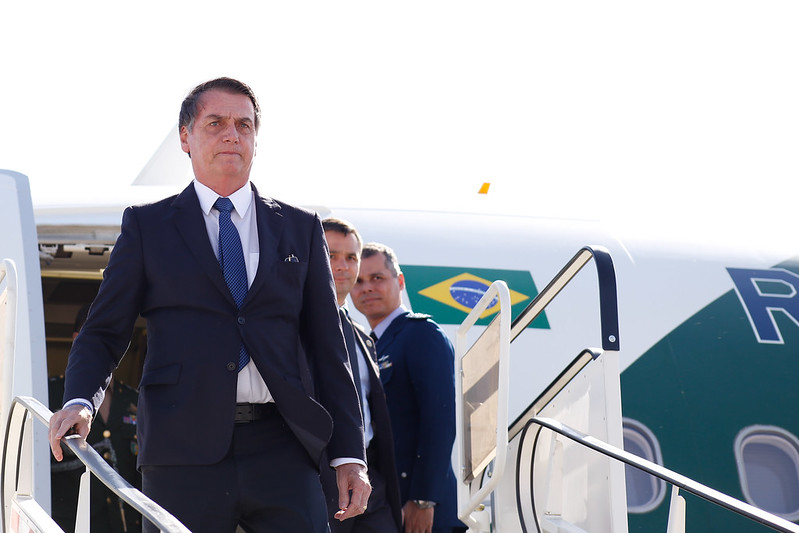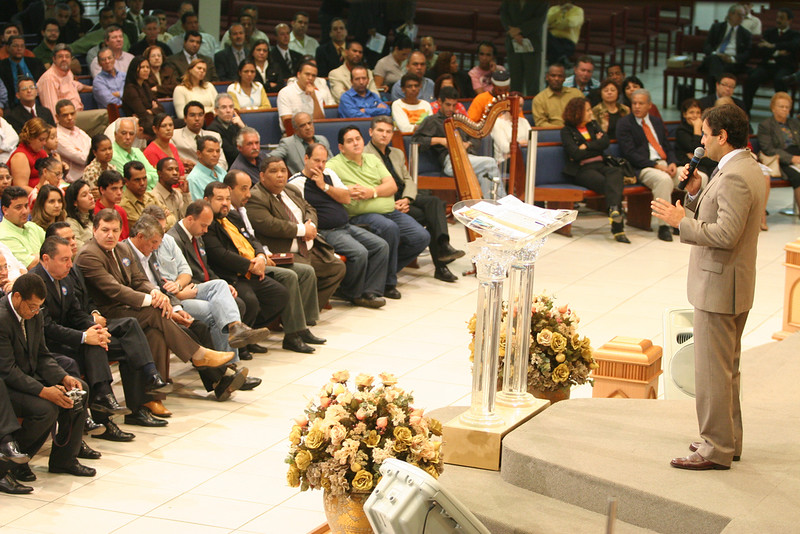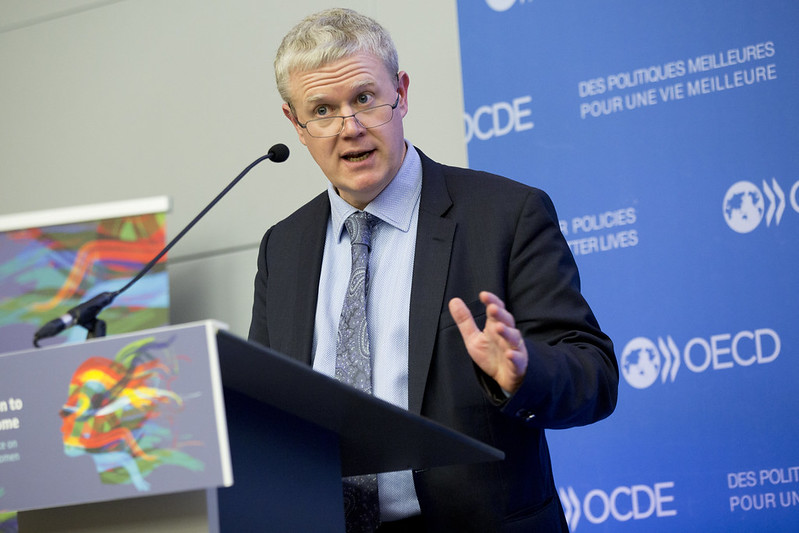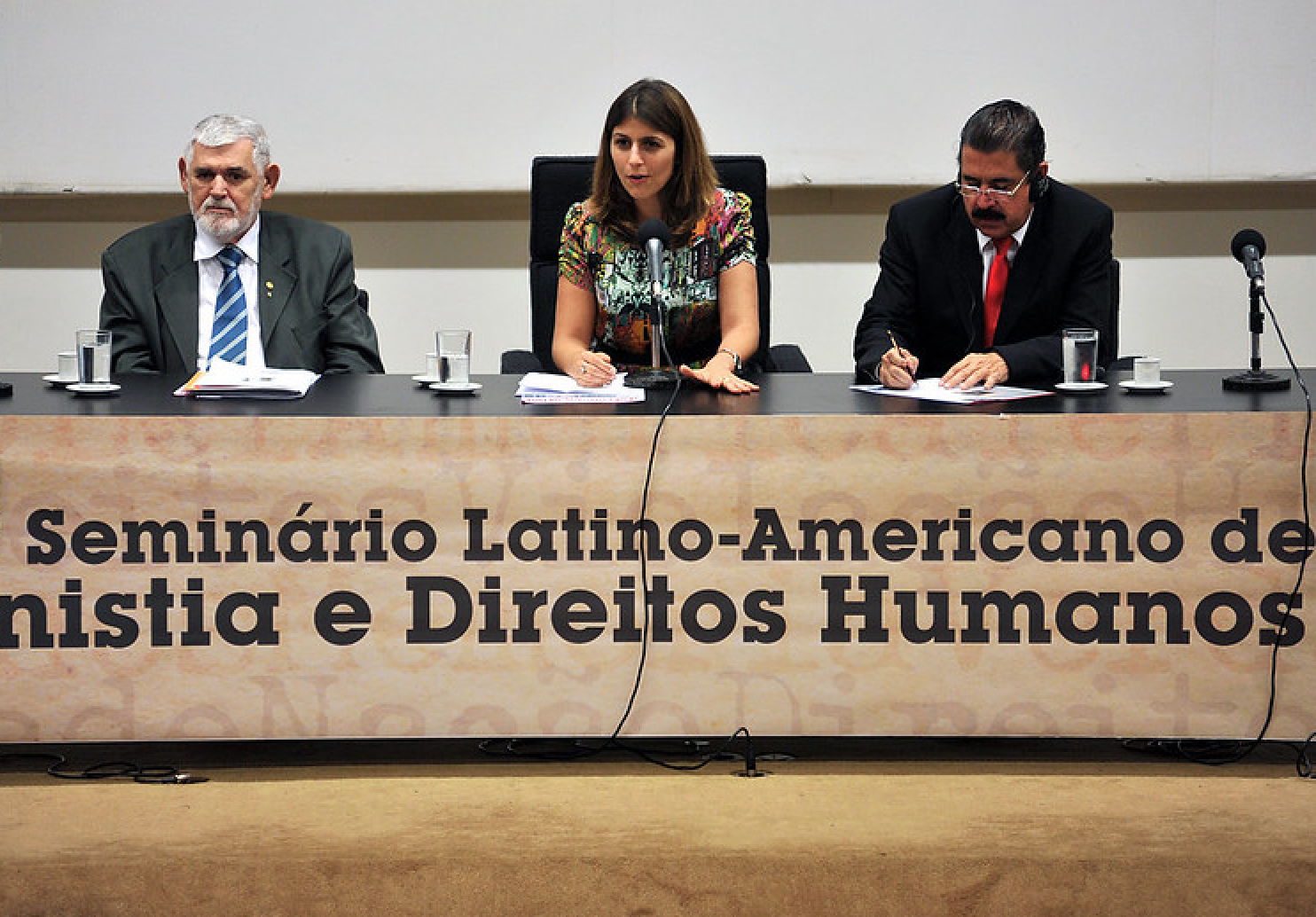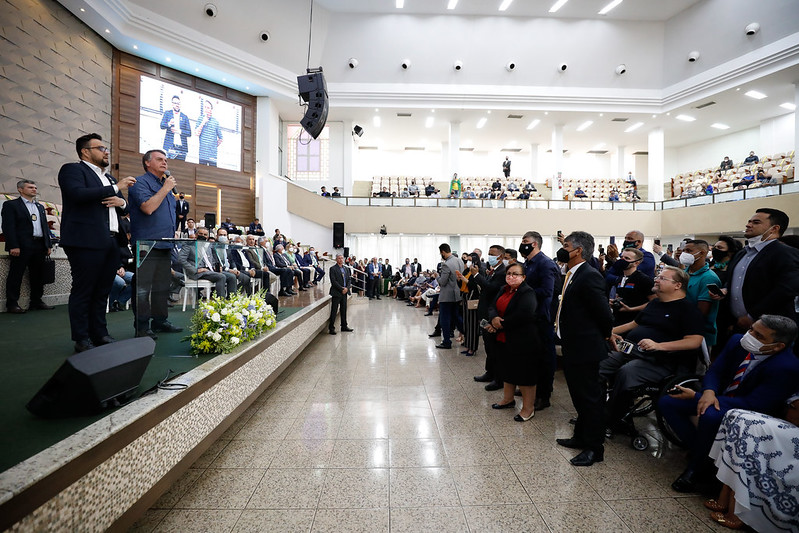Imakay Research Hub
Artigo
Bolsonaro’s diplomatic isolation and international support for democracy in Brazil
23/11/2022
Giovanna Macieira Rosario, M.A. student in International Relations (IRI-USP)
During his time as President of the Republic, Jair Bolsonaro did not win any sympathy from the international community. The Foreign Policy conducted by the former Foreign Minister, Ernesto Araújo, was marked by ideological use of diplomacy, and the speeches made by the president at the United Nations were characterized by Trumpist “anti-globalism” and fantasies about communist threats, corresponding to the political believes of his most loyal electorate.
Bolsonaro, by gathering dozens of foreign ambassadors at the Alvorada Palace trying to give some reasonableness to his attempt of delegitimizing the Brazilian Electoral System, seems to have forgotten the dismal image he built for himself during the four years of a Foreign Policy guided exclusively by ideological affinities. The only effect that his conspiracy theories about the electronic ballot box – used in all national elections since 1996 – have had is the reaffirmation of trust by the United States and the European Union concerning the Brazilian electoral process.
Jair Bolsonaro’s diplomatic isolation
Former Chancellor Ernesto Araújo, who despite his affinity with Bolsonaro had to leave the post after strong pressure from the Senate, took over Brazilian diplomacy with the commitment, according to him, to rescue a West that would be in a process of civilizational deterioration and whose salvation was found in the figure of the then President of the United States, Donald Trump. Thus, the Bolsonaro government opted for automatic alignment, not with the United States, but with Trump.
The ideological alignment, however, was not restricted to the then-president of the United States. Israel’s Benjamin Netanyahu, Polish President Andrzej Duda, and Hungarian Prime Minister Viktor Órban also met the requirements. Meanwhile, Ernesto Araújo, Bolsonaro and his politically active sons were at odds with China, Brazil’s largest trading partner, and the European Union, the country’s second largest trading partner.
Bolsonaro’s disastrous management of the COVID-19 pandemic did not help improve his image abroad, ending the pandemic with almost 700,000 deaths in Brazil and losing only to the United States led by Trump, which reached 1 million. The negationist posture about the seriousness of the disease, which according to the president would be just a “little flu”, seems to have been inspired by the former US president, as well as the repeated statements against social isolation.
Blaming China for the pandemic and the repeated insults to the Asian country were mainly led by the president’s son, Eduardo Bolsonaro, who occupies the position of federal deputy and, despite not representing the Executive, should be understood as one of his father’s voices, being present on numerous official diplomatic trips. By behaving as a true defender of American interests, the president’s son managed to arouse the rebuke of the Chinese embassy in the country during the health crisis, bothering Brazilian businessmen and producers who have China as their main trading partner.
According to a survey conducted by El País, the international press coverage on the conduct of the health crisis in Brazil has made clear an evident “ethical crisis and management failure”. The Bolsonaro government’s treatment of the pandemic has contributed to the already deteriorated image of the country in the international community. The coverage of the Brazilian health disaster, at one point, surpassed even the international criticism of the environmental policy led by the president.
The data regarding deforestation of the Amazon during the Bolsonaro administration have caught the attention of the international community in a very negative way. In Bolsonaro’s first three years as president, the rate of deforestation of the forest rose by 73%. For the year 2022, which at the time of this writing has not yet ended, the deforestation rate has surpassed that of the previous three years taken individually.
This whole process can be understood as the result of a painful dismantling of Brazilian environmental policy. Bolsonaro, during his election campaign in 2018, stated that he would end a supposed “environmental fine industry” of the Brazilian Institute of Environment and Natural Resources (Ibama). In 2019, the president signed a decree aiming to hinder the inspections carried out by Ibama.
The deregulation of the environmental sector was a priority of his Environment Minister, Ricardo Salles, known for the expression “passing the buck”, meaning progressively making small changes in legislation while the media was “distracted” by the COVID-19 pandemic. It was this dismantling, together with statements by the president and other members of the government, that encourage illegal deforestation by creating a widespread sense of impunity.
The alarming numbers of deforestation produced by this dismantling of environmental policy have been one of the greatest potential drivers of Bolsonaro’s diplomatic isolation. One of the first signs of this isolation was the suspension of financial support for environmental protection. In addition, the burning of the Amazon forest has even been on the agenda of a G7 meeting without the presence of Brazil, at the initiative of French President Emmanuel Macron. Finally, the trade agreement between Mercosur and the European Union remains unratified, and one of the explanations for this impasse is precisely the environmental policy during the government of Jair Bolsonaro.
Diplomatic isolation and the impossibility of challenging the election result
Jair Bolsonaro’s repeated attacks on Brazilian democracy, especially the country’s electoral system, have also contributed to accentuating the president’s diplomatic isolation. In 2022, Bolsonaro, who appeared behind Lula in the electoral polls throughout the presidential race, strove to delegitimize the Brazilian electoral process, in an attitude similar to Donald Trump in 2020.
While the U.S. president directed his efforts in 2020 toward contesting voting by mail as an alternative for people who did not feel comfortable voting in person during the pandemic, the Brazilian president chose to attack the electronic ballot boxes. On several occasions, the president has challenged, without any evidence, the security of the electronic ballot boxes that guarantee the speed of the Brazilian electoral process and are considered internationally as an example of electoral efficiency.
Bolsonaro stated that he would only leave the presidency if the elections were clean, and, according to him, this would not be the case in Brazil. In his attempts to disrupt the electoral process and generate distrust, Bolsonaro even gathered dozens of foreign ambassadors at the Alvorada Palace, as mentioned above, to reaffirm that the Brazilian elections would be rigged in favour of his opponent.
However, while the president defended the idea of electoral fraud, he also distributed tens of billions in benefits to the population a few months before the election and artificially held down the price of fuel, to try to reverse the defeat that was looming. The president’s coup strategy had positive repercussions on his base of supporters that never showed any timidity to ask for military intervention. However, the repercussion of these initiatives at the international level makes it impossible to contest the results of the ballot box.
The US Senate, for example, signed a resolution to condition the relationship with Brazil on acceptance of the election result, while members of the European Parliament asked EU leaders to monitor the Brazilian elections due to the possibility of turmoil by Bolsonaro and to cut off relations with Brazil in the event of a coup attempt. In addition, US parliamentarians delivered a letter to President Joe Biden in which they cited Bolsonaro and their concern about the possibility of a coup in Brazil.
Given this situation, Bolsonaro may even somewhat disrupt the transition to the new Lula government, but any attempt to prevent the new president from taking office will not have any international support and is therefore very unlikely to occur. There is the possibility of occurrences similar to the January 6 invasion of the U.S. Capitol, but any attempt to contest the results of the polls has no chance of success. Jair Bolsonaro has never hidden his autocratic pretensions, he will not leave power out of respect for Brazilian democracy, but because he has no other alternative. If he wants to survive politically, he will have to choose silence in the face of defeat.

